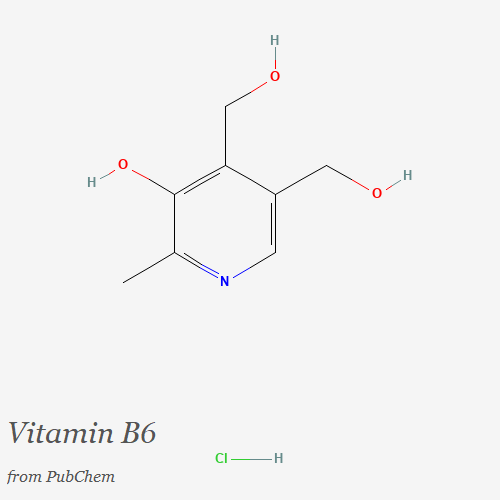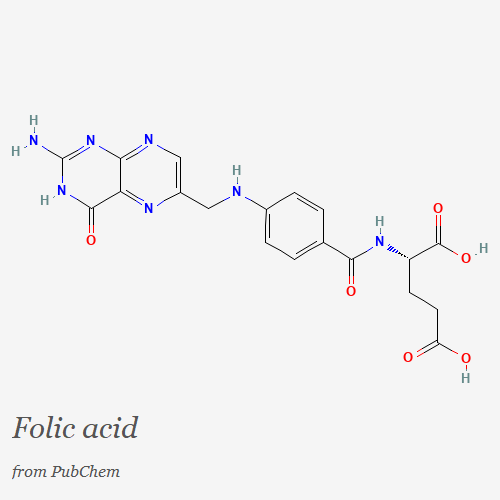
Vitamin B6 and vitamin B9 are essential nutrients required by the body to perform various functions. These vitamins belong to the B-complex family and are water-soluble, which means that they are not stored in the body and need to be replenished on a regular basis. We will take a closer look at the benefits of vitamin B6 and vitamin B9, their dietary sources, and their role in maintaining good health.

Vitamin B6
Vitamin B6, also known as pyridoxine, is a coenzyme that plays a vital role in the metabolism of amino acids, carbohydrates, and lipids. It also helps in the production of neurotransmitters, such as serotonin and dopamine, which regulate mood and behavior. Moreover, vitamin B6 is essential for the formation of red blood cells, which carry oxygen throughout the body.

Dietary Sources
The best dietary sources of vitamin B6 are poultry, fish, liver, potatoes, bananas, chickpeas, and fortified cereals. However, the amount of vitamin B6 in these foods may vary depending on the cooking method and processing.
Benefits
Vitamin B6 has several health benefits, some of which are listed below:
1. Boosts Immune System: Vitamin B6 helps in the production of white blood cells, which are responsible for fighting off infections and diseases.
2. Improves Mood: Vitamin B6 is involved in the synthesis of neurotransmitters that regulate mood and behavior. Studies have shown that vitamin B6 supplementation may alleviate symptoms of depression and anxiety.
3. Reduces Risk of Heart Disease: Vitamin B6 helps in the metabolism of homocysteine, an amino acid that has been linked to an increased risk of heart disease. By lowering homocysteine levels, vitamin B6 may help reduce the risk of heart disease.
4. May Improve Brain Function: Vitamin B6 is involved in the production of neurotransmitters that are essential for cognitive function. Studies have shown that vitamin B6 supplementation may improve memory and concentration in elderly people.
Vitamin B9
Vitamin B9, also known as folic acid or folate, is a water-soluble vitamin that plays a vital role in the formation of DNA and RNA. It is particularly important during pregnancy, as it helps in the development of the fetal nervous system. Moreover, vitamin B9 is essential for the production of red blood cells and the synthesis of neurotransmitters.

Dietary Sources
The best dietary sources of vitamin B9 are leafy green vegetables, such as spinach and broccoli, as well as fortified cereals, beans, and lentils. However, cooking and processing may reduce the amount of vitamin B9 in these foods.
Benefits
Vitamin B9 has several health benefits, some of which are listed below:
1. Reduces Risk of Birth Defects: Vitamin B9 is essential for the development of the fetal nervous system. Adequate intake of vitamin B9 during pregnancy may reduce the risk of birth defects, such as spina bifida and anencephaly.
2. May Reduce Risk of Cancer: Studies have shown that vitamin B9 may reduce the risk of various types of cancer, such as colon, breast, and pancreatic cancer. However, more research is needed to confirm these findings.
3. Improves Heart Health: Vitamin B9 helps in the metabolism of homocysteine, an amino acid that has been linked to an increased risk of heart disease. By lowering homocysteine levels, vitamin B9 may help improve heart health.
4. May Improve Mood: Vitamin B9 is involved in the synthesis of neurotransmitters that regulate mood and behavior. Studies have shown that vitamin B9 supplementation may alleviate symptoms of depression and anxiety.
Conclusion
Vitamin B6 and vitamin B9 are essential nutrients required by the body to perform various functions. They are involved in the metabolism of amino acids, carbohydrates, and lipids, as well as the production of neurotransmitters and red blood cells. The best dietary sources of vitamin B6 and vitamin B9 are poultry, fish, liver, leafy green vegetables, and fortified cereals. Adequate intake of these vitamins may improve immune function, mood, and heart health.